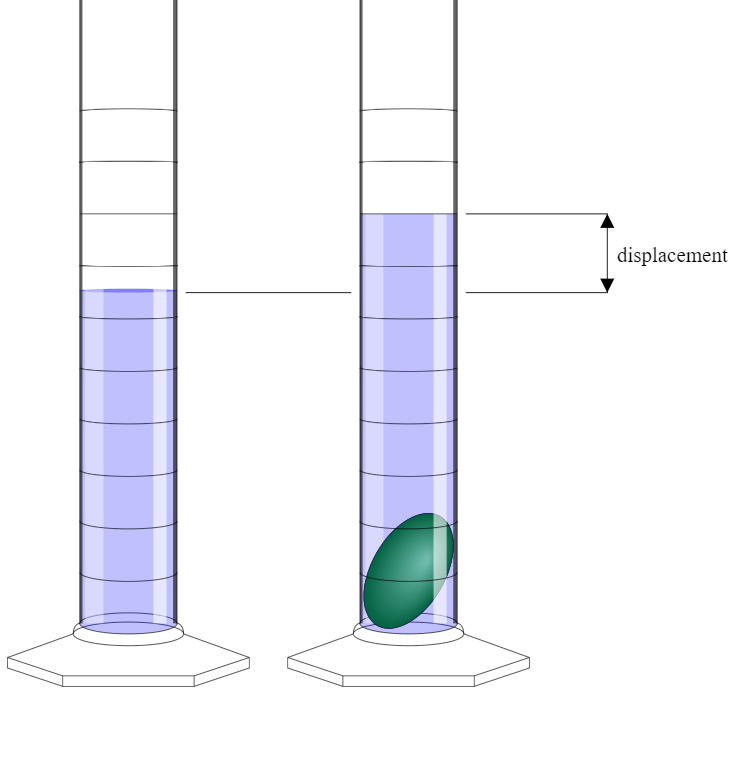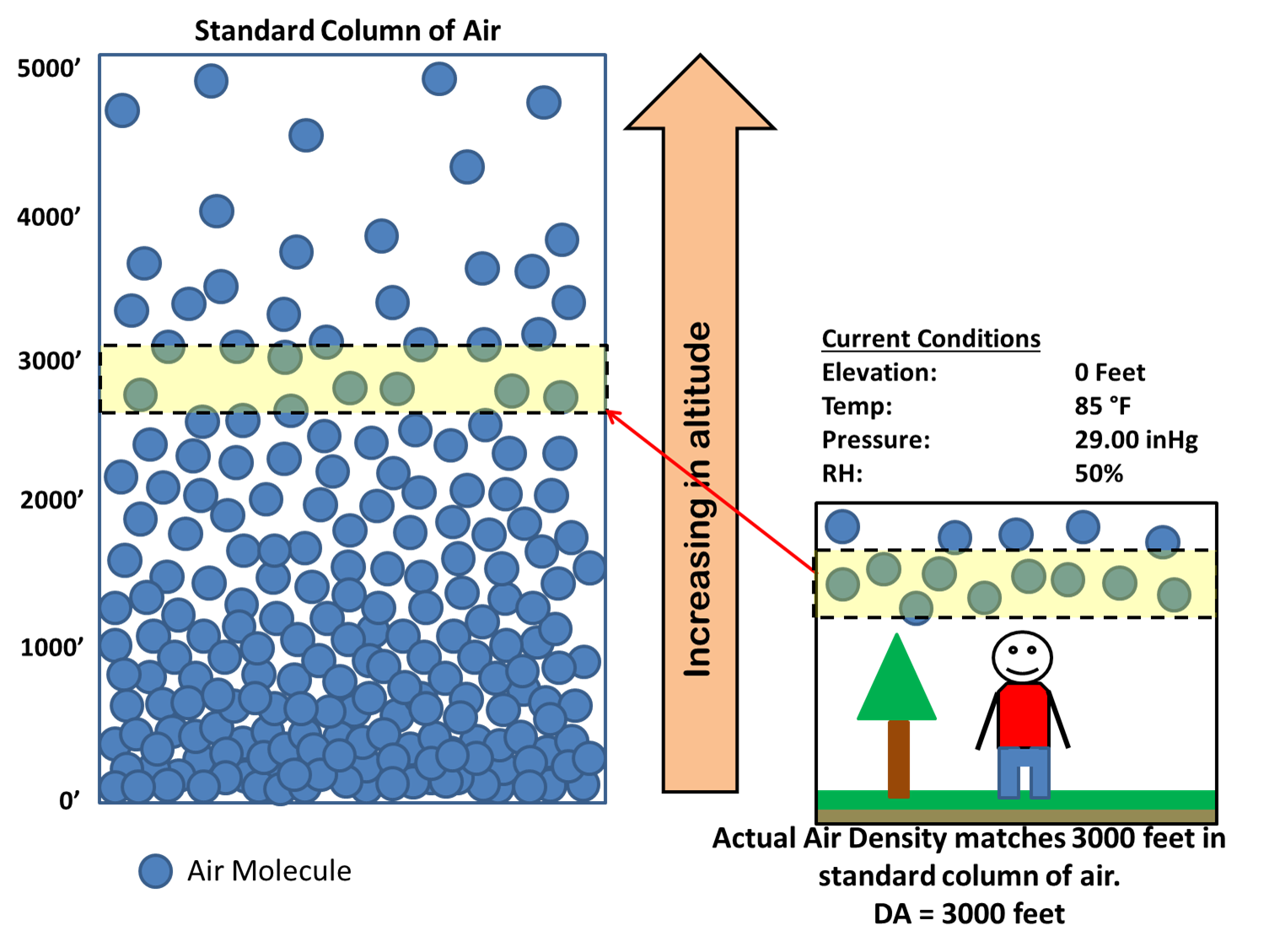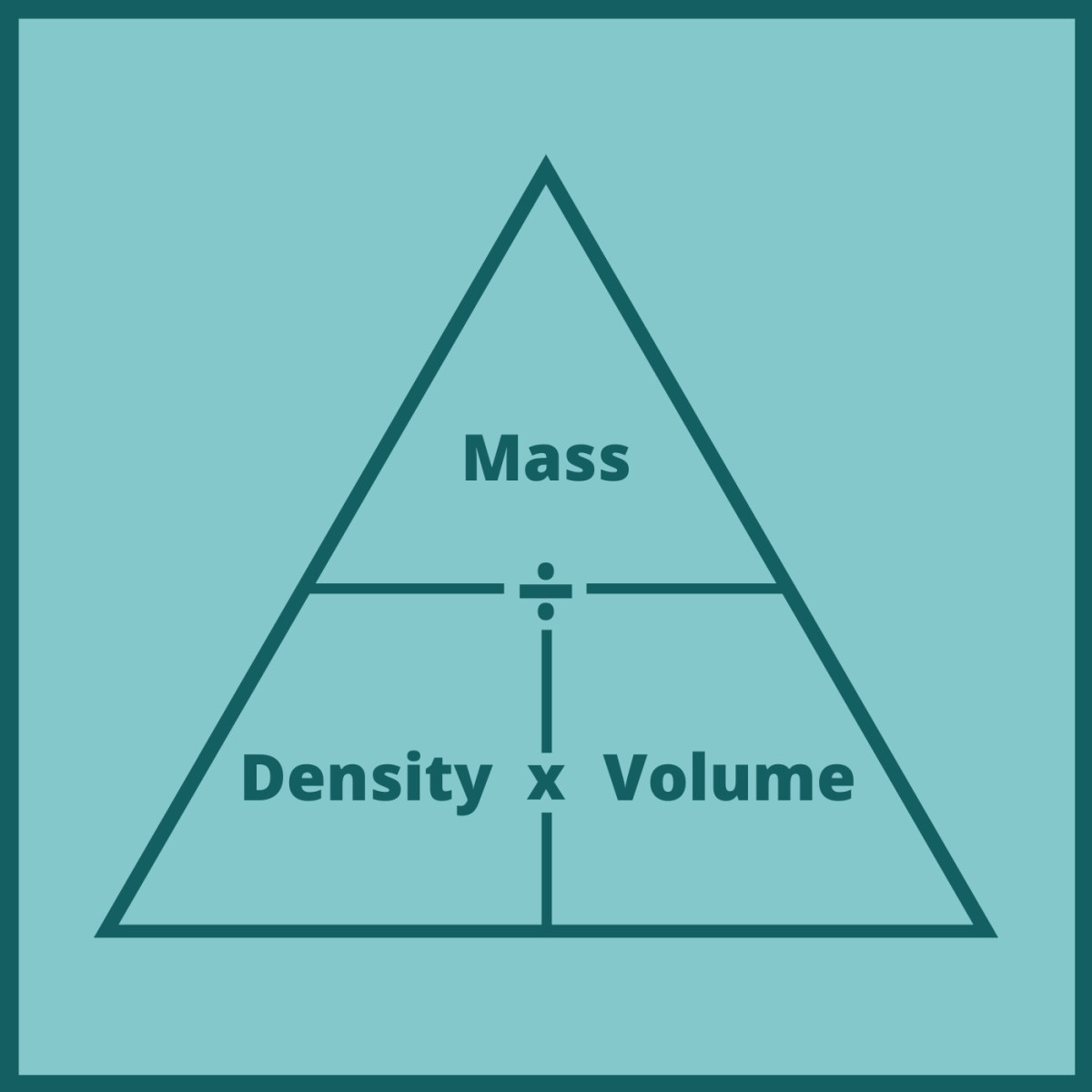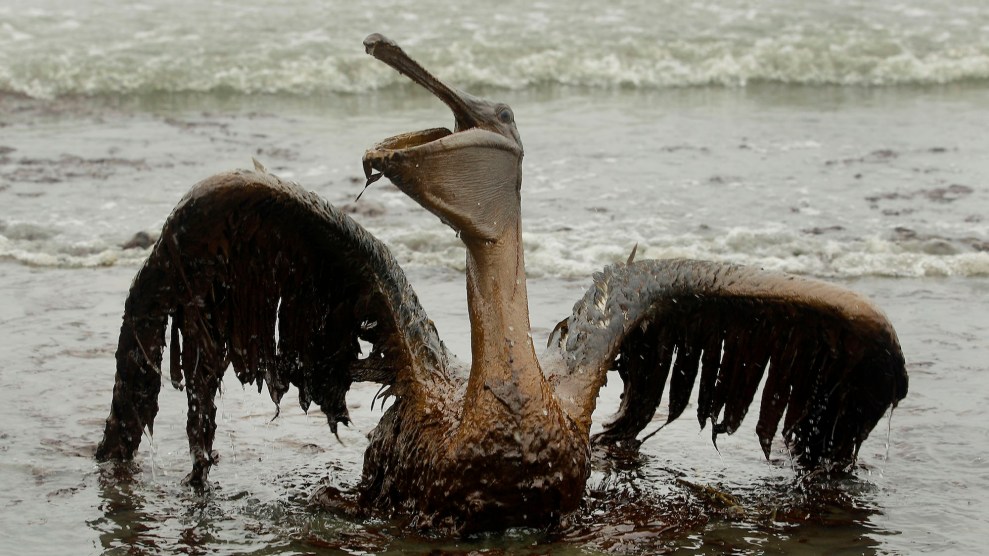
Mass
- Amount of matter in an object
- Constant everywhere in the universe
- Measured in some type of gram (ie. kg, g)

Volume
- Space that object takes up
- Usually measured with displacement in science (because science doesn’t have nice regular shapes to measure like math)
- Measured in some type of meter cubed (ie. cm3, m3) or some type of litre (ie. mL, L)
- 1 mL = 1 cm3

Density
- Measured by dividing mass by volume (M/V)
- Measures the amount of matter in a given volume of a substance
- Grams corresponds millilitres, kilograms to litres, etc.
Mass (m), volume (V), and density (D*) form a triangle for how to calculate them given the other two values:
(*Density is usually notated as ρ (Greek letter rho) but I will be referring to it as D)
Density is dependent on two things: the mass of the particles and how tightly those particles are “packed together.”
Because solids are usually packed tighter together than liquids or gases, they are typically denser than them. For the same reason, liquids are usually denser than gases. The spaces between gas particles are larger than those in solids and liquids, so there are considerably fewer particles in a given volume of gas.
:max_bytes(150000):strip_icc()/density-tower-showing-vase-with-5-layers-761602233-5a280d27842b170019ae91c3.jpg)
Density also depends on the types of particles in the substance. Water and oil are both liquids, but at the same temperature, oil is less dense than water because their particles mass differently. For the same reason, air is much denser than helium.
When fluids of different densities are poured into a container carefully, they naturally separate into layers with the most dense substances being at the bottom and least dense at the top. Even when solids are put into this density tower, they float/sink according to their densities.
However, density does not impact the viscosity of a fluid. Oil is less dense than water, but it is more viscous because its cohesive bonds are stronger. However, syrup, another liquid more viscous than water, is denser than it.
When the temperature of a substance is heated, its particles spread out, thus decreasing the amount of matter in a given volume. Therefore, it would cause the density to decrease. The vice versa happens when temperature is decreased.

When pressure is added, the total volume of the object would slightly decrease for solids and liquids, and sharply decrease for gases. This increased the density because the particles are packed more tightly together.
Hydrometer
Hydrometers are used to measure densities of liquids. It is an instrument that operates based on the Archimedes principle that a solid body displaces its own weight within a liquid in which it floats.
Hydrometers float at different levels in different liquids because the liquids push upward on the hydrometer with different forces. In other words, each fluid has a different buoyancy. Salt water, for example, is more dense than fresh water, so it provides a greater buoyant force.
Hydrometers can be divided into two general classes: liquids heavier than water and liquids lighter than water.
It is a much more accurate way of seeing if two visibly identical liquids are actually different without changing their particles using dyes or using more scientific instruments.
Instructions on how to make a hydrometer at home can be found here.
Why is density important in real life?
For example, wWhen there are dreaded oil spills in the ocean or any other large body of water, the oil stays above water, which makes it easier to clean.
By using floating booms to encircle the oil on the surface of the water, different methods to scoop, soak, or suck up as much captured oil as possible and dispersants (chemicals that break up the oil molecules), most oil spills can be cleaned up.
However, during the process, the harm to aquatic and shore plants and animals can be life-threatening. The oil could contaminate their food, make it difficult for them to breathe, and destroy the insulating effect of fur or feathers.







